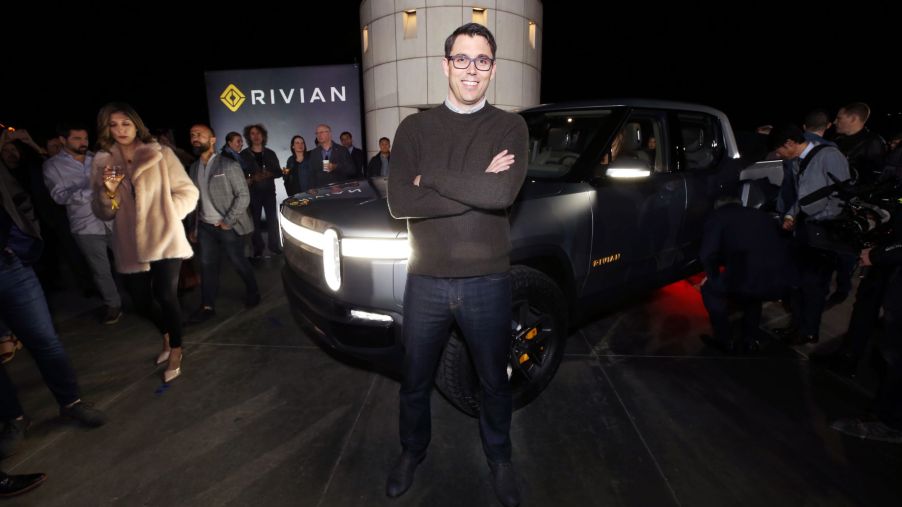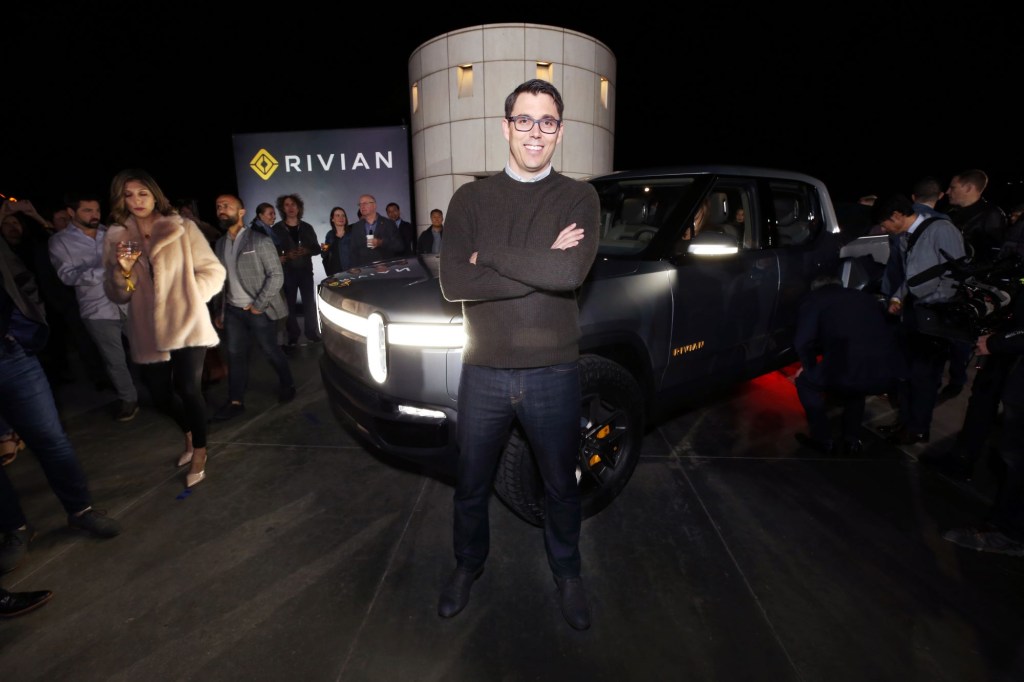
Rivian’s CEO Warns Others About a Looming Battery Shortage
Rivian is one of the latest automakers on the EV scene and already has some eye-catching vehicles. The Rivian R1T was its first release, an electric pickup truck with several unique features. Those who ordered the Rivian R1S, an electric SUV resembling a futuristic Land Rover, will start getting their orders this summer.
That is if the supply chain issues in the automotive industry can stay under control. According to the Wall Street Journal, Rivian’s CEO anticipates a worldwide shortage of EV battery components in the near future. What does this mean for the EVs and the car industry in general?

A massive battery shortage could be imminent
Many automakers have pledged to make their entire lineups emissions-free by 2030. With less than eight years to meet that deadline, the auto industry and EV infrastructure will have to change rapidly. More public chargers will have to be installed across the globe, and automakers will scramble over battery components.
Rivian CEO RJ Scaringe says the chip shortage will be a “small appetizer” compared to the looming battery shortage. He told WSJ that “90 to 95% of the supply chain does not exist” regarding battery cell production. These components will only get more expensive as automakers continue to purchase large quantities of materials. Bloomberg says nickel is already at a historically high price, $55,000 per metric ton.
According to Autoblog, even the hybrids and EVs currently for sale have affected the supply chain. Even though only 3% of the vehicles sold last year were EVs, demand for lithium-ion battery materials increased by 37%. A 50% increase is estimated for 2022.
Autoblog also foresees that lithium-mining practices could become a hot-button issue like fracking. If lithium mining is regulated to prevent extensive environmental damage, demand will rise even higher.
Scaringe predicts that the possible battery shortage would last at least 20 years. Rivian is considering the feasibility of in-house battery cell production to prevent its shortages. The automaker also plans to diversify its battery suppliers to ensure a steady flow of materials.
Will it be as bad as the chip shortage?
The chip shortage that started in 2020 could last until mid-2023, according to a CNET report. Without enough chips, automakers have had to cut production on their vehicles and eliminate common features that used to be standard. We might see 2022 or 2023 cars that lack seat heaters and touchscreens, even if those features were available the previous year.
Automakers have been acutely affected by the shortage because cars require a specific semiconductor chip. These chips aren’t as powerful as those used in computers and smartphones. They’re also less profitable for chip manufacturers to produce, so the most powerful semiconductor chips are prioritized.
Last year, Ford was the biggest loser, missing out on an estimated $1.25 million in vehicle sales. Even though Toyota saw significant gains over its rivals in 2021, it still lost about $1.1 million in revenue.
Rivian is no stranger to vehicle production problems
Rivian is probably honing its battery shortage strategy right now because of its issues in the past. Scaringe revealed that Rivian had to cut its 2022 production estimates by 50% due to the chip shortage.
Because Rivian is a relatively new company, it didn’t have the healthiest chip supply compared to other EV manufacturers. It was also trying to produce an abundance of two consumer vehicles, along with an electric delivery van, all at the same time.
Despite supply chain hiccups, Rivian was still able to deliver hundreds of R1T trucks to those who had reserved one online. A battery shortage seems increasingly likely, but it looks like Rivian is as prepared as an automaker can be.


